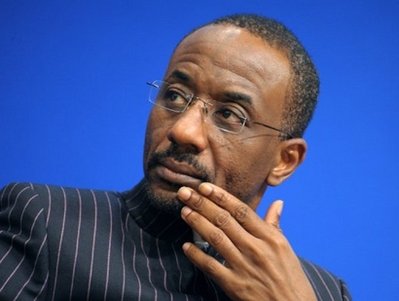This is contained in a statement signed by Dr Ejike Ndiulo, head of Corporate Communications, Air Peace, on Wednesday in Lagos.
According to Ndiulo, the decision is necessary because NiMet is the agency responsible for issuing CNH (Current Nowcast of Hazardous Weather) reports, critical for safe landings, especially during this season of heavy rainfall and thunderstorms.
He said without these reports from the control tower, flight safety could not be guaranteed.
“As a safety-first airline, we have chosen to act responsibly by suspending operations until NiMet resumes full service.
“We understand this may cause inconvenience, and we sincerely apologise. Passengers will be contacted with updates and options for rescheduling,” he said.
The staff of NiMET on Tuesday commenced an indefinite strike over the condition of service and other demands.
News
Rising Cyber Terrorism Spreads Panic in Nigeria

The rise and rise of cyber attacks on organizations suggest that Nigeria now face even more perilous times than the activities of the Boko Haram, the dreaded Islamist sect, Nigeria CommunicationsWeek investigations have shown.
Economic Financial Crimes Commission (EFCC), Central Bank of Nigeria (CBN), Nigeria Labour Congress (NLC), the Nigeria Police Force, Defence headquarters and many other sensitive public and private websites have been hacked, suggesting that the fight is moving from conventional battlefields into the digital world.
The potential threat posed by cyber-terrorism has provoked considerable alarm.
The attacks are the new face of terrorism but now taken to the internet and it is what is commonly known as cyber-terrorism.
It is hacking or attack of networks and computers to obtain or modify information for political and/or social objectives or rather, a way to quickly and easily distribute propaganda and get a lot of attention drawn to it.
Cyber-terrorism include acts of deliberate, large-scale disruption of computer networks, especially of personal computers attached to the Internet, by the means of tools such as computer viruses.
Recently, Kaspersky Lab, a leading computer security firm warned that a new cyber surveillance virus has been found in the Middle East that can spy on banking transactions and steal log in information for social networking sites, email and instant messaging.
Numerous security experts have pointed to the dangers of cyber-terrorists hacking into government and private computer systems and crippling the military, financial, and service sectors of advanced economies.
Peter Iwuegbu, an ICT security expert said that cyber-terrorism is clear and present danger and that Nigeria need to wake up.
Nigeria CommunicationsWeek gathered that by crippling a country’s economy, a cyber terrorist can also potentially weaken the country for a military attack.
The Monterey Group, a premium cyber security consulting firm for performance-oriented public and private sector clients said there are three levels of cyber-terror capability.
The first is simple-unstructured- the capability to conduct basic hacks against individual systems using tools created by someone else. The organization possesses little target analysis, command and control, or learning capability.
There is also advanced-structured- the capability to conduct more sophisticated attacks against multiple systems or networks and possibly, to modify or create basic hacking tools.
The organization possesses an elementary target analysis, command and control, and learning capability.
Elsewhere, there is the complex-coordinated- the capability for coordinated attacks capable of causing mass-disruption against integrated, heterogeneous defenses (including cryptography) – ability to create sophisticated hacking tools and highly capable target analysis, command and control, and organization learning capability.
Only recently, Oracle Corp and Computer Warehouse Group (CWG), an indigenous IT conglomerate warned that the cashless regime may by hampered by cyber threats if adequate safe guards are not put in place.
The companies said that this can be achieved by deploying best-in-class IT security solutions that can protect network and their databases from external intrusions and attacks.
James Agada, chief executive officer, ExpertEdge, said: “If we believe that we are prone to having more attacks as we drive further our cashless policy initiative, we should be prepared.
Today we are talking of e-commerce and cashless economy, which implies that the volume and value of information that you have increase. And because it has monetary value, the data are likely to be targeted by hackers and this can rob an organization several millions and billions of naira.”
But nearly half of firms globally are not prepared for cyber threats on their networks; a research by B2B International in conjunction with security company Kaspersky Lab has shown.
According to the research, while firms recognise the threat from cyber crime, over 40% are not actively engaged in protecting themselves from an attack.
“According to the survey, in 41% of cases the answer is ‘no’ – corporate infrastructure lacks the necessary protection to handle online attacks,” Kaspersky Lab said.
News
EFCC Secures Arrest Warrant for Six CBEX Promoters

A federal high court in Abuja has granted permission to the Economic and Financial Crimes Commission (EFCC) to arrest and detain six Crypto Bridge Exchange (CBEX) promoters over allegations of investment fraud to the tune of over one billion dollars.

Emeka Nwite, presiding judge, gave the order following an ex parte application moved by Fadila Yusuf, counsel to the EFCC.
In the application by the EFCC, the six suspects are Adefowora Olanipekun, Adefowora Oluwanisola, Emmanuel Uko, Seyi Oloyede, Avwerosuo Otorudo and Chukwuebuka Ehirim.
The commission sought an order of the court for a warrant of arrest of the defendants.
They also prayed the court for “an order remanding the defendants in the custody of the complainant/applicant pending the conclusion of investigation of the alleged offences and possible prosecution”.
Yusuf said that the defendants are at large and a warrant of arrest is required to arrest the defendants for proper investigation and prosecution of this case.
In the affidavit in support of the motion, the EFCC said preliminary investigation into the intel revealed that the defendants “using their company ST Technologies International Limited, promoted another company Crypto Bridge Exchange (CBEX) by making adverts and lured unsuspecting members of the public to invest crypto cryptocurrencies on the CBEX investment platform”.
The EFCC said the defendants promised an unrealistic return on investment of up to 100 percent.
“The victims were made to convert their digital assets into a stablecoin of USDT for onward deposit into the suspects’ crypto wallet,” Yusuf said.
“The victims were initially given full access to the platform to monitor their investment.
“Following the deposits valued at over $1 billion by the victims, the CBEX investment platform became inaccessible to them, and they could no longer withdraw from the investment made.
“The victims later discovered that the said scheme is a scam.
“During the course of investigation, it was discovered that the said ST Technologies International Limited, though registered with the Corporate Affairs Commission (CAC), it was not registered with the Securities and Exchange Commission (SEC) for investment purposes.
“It was also discovered during the investigation that the defendants had moved out of their last known address in Lagos and Ogun states.”
The anti-graft agency said obtaining a warrant of arrest was necessary in order to place the defendants on a watch list, enabling authorities to trace and apprehend the suspects to face the charges brought against them.
Nwite granted the request for a warrant of arrest and remand, adding that the order was necessary to enable the commission to apprehend the defendants and conclude its investigation.
“I have listened to the submission of the learned counsel for the applicant,” Nwite said.
“I have also gone through the affidavit evidence with exhibits thereto, along with the written address.
“I am of the view and I so hold that the application is meritorious.
“Consequently, the application is granted as prayed.”
Earlier in April, reports emerged that CBEX users could no longer withdraw their funds.
On Monday, angry investors stormed and looted the office of Smart Treasure (ST Team), an affiliate of CBEX, in Ibadan, Oyo State.
The EFCC recently confirmed receiving multiple complaints about the platform.
Dele Oyewale, the commission spokesperson, assured affected investors that efforts were underway to recover their funds.
News
Air Peace Suspends Flight Operations Nationwide

News
NITDA Fixes Date for Inaugural Meeting of the Startup Consultative Forum

The National Information Technology Development Agency (NITDA) is pleased to announce the inaugural meeting of the Startup Consultative Forum, scheduled for Monday April 28, 2025 This milestone event marks a significant step in deepening stakeholder engagement within Nigeria’s growing startup ecosystem.

The Forum will serve as an interactive platform for startup founders, innovators, ecosystem enablers, and intermediaries to actively shape national policies that foster growth, attract investment, and drive digital innovation.
Convened under the framework of the Nigeria Startup Act (NSA), this initiative reflects the government’s commitment to making startups not just stakeholders but key contributors in building an enabling environment for innovation.
The meeting will emphasize collaborative dialogue, with a primary focus on nominating and selecting representatives for the National Council for Digital Innovation and Entrepreneurship (Startup Council)—Nigeria’s highest advisory body for the startup ecosystem. Decisions from this Forum will lay the foundation for inclusive policy development, amplifying the voices of Nigeria’s tech and innovation community.
NITDA invites all Labelled Startups, Verified Entrepreneurial and Innovation Support Organisations, Angel Investors, Venture Capitalists, and other relevant stakeholders to join the Forum and actively participate in the nomination and voting process.
Join us in shaping the future of digital innovation in Nigeria. Together, we can build a thriving ecosystem that supports and celebrates the pioneering spirit of Nigerian startups.

 Telecom3 days ago
Telecom3 days agoNigeria Hits 1 Terabit Internet Traffic Milestone

 E-Financial3 days ago
E-Financial3 days agoFCMB Capital Markets Leads ₦11.85bn GLNG Bond for LNG Plant Expansion

 General News3 days ago
General News3 days agoFG to Introduce New Tax Credit Scheme to Replace Pioneer Status Incentive

 Telecom3 days ago
Telecom3 days agoMTN Nigeria Faces Class Action Lawsuit over Alleged Data Mismanagement

 News3 days ago
News3 days agoIMF Downgrades Nigeria’s Economic Growth Forecast Amid Oil Price Decline

 E-Business21 hours ago
E-Business21 hours agoALX Nigeria Launches 2025 Ventures Incubator, Premieres Pan-African “Do Hard Things” Finale

 News3 days ago
News3 days agoNITDA Fixes Date for Inaugural Meeting of the Startup Consultative Forum

 E-Financial2 days ago
E-Financial2 days agoUnion Bank’s Edu360 Initiative Scores Big for Nigerian Football Development




























